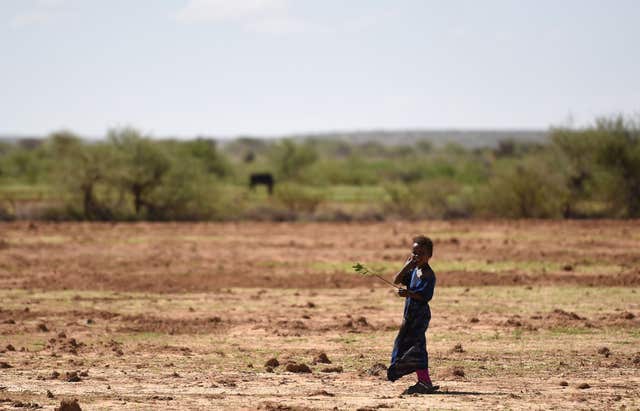People in the UK are increasingly exposed to dangerous extreme heat, as global health threats of climate change reach record-breaking levels, experts warn.
Around the world in 2023, people were exposed to an average 50 more days of health-threatening temperatures than would be expected without climate change, while extreme drought affected 48% of global land area, the latest Lancet Countdown on Health and Climate Change report said.
The higher frequency of heatwaves and droughts was linked to 151 million more people experiencing moderate or severe food insecurity than they were each year between 1981 and 2010.
At the same time, 61% of the world’s land area saw an increase in extreme rainstorms in the past decade, increasing the risk of flooding, infectious disease and water contamination, while the risk of mosquito-borne diseases such as dengue has increased.

In the UK, people are increasingly exposed to health-threatening extreme heat, raising the risk of heat-related illness and mortality, with an extra nine deaths per 100,000 people on average in 2013-2022.
Every infant and adult over 65 was exposed to an average 6.5 days of heatwaves a year between 2014-2023, while 8.5 million potential labour hours were lost to extreme heat in 2023, up 166% from the 1990s average, with construction workers hardest hit, the report warns.
The report also warns that people’s health in the UK was being hit by air pollution, with 29,500 deaths in 2021, with fossil fuels contributing to 44% of those cases, and early deaths costing £70 billion – but shifting towards zero emissions and clean energy could tackle climate and health problems.
And unhealthy, unsustainable diets are contributing to greenhouse gas emissions and hitting health, but a shift to more balanced diets would reduce deaths and tackle climate change, the report argues.
The report finds that 10 of the 15 indicators tracking health threats of climate change have reached new record levels.
The report’s authors accuse governments and companies of continuing to fuel the fire by investing in fossil fuels, and say the trillions of dollars spent funding oil, gas and coal should be redirected to the shift into clean economies.
Dr Marina Romanello, executive director of the Lancet Countdown at University College London, said the findings, released as countries prepare to meet for the next round of UN climate negotiations in fossil-fuel rich Azerbaijan, were the most concerning in the eight years of the report.
“Once again, last year broke climate change records—with extreme heat waves, deadly weather events, and devastating wildfires affecting people around the world,” she said.
“No individual or economy on the planet is immune from the health threats of climate change.
“The relentless expansion of fossil fuels and record-breaking greenhouse gas emissions compounds these dangerous health impacts, and is threatening to reverse the limited progress made so far, and put a healthy future further out of reach.”
Dr Romanello added: “Despite this threat, we see financial resources continue to be invested in the very things that undermine our health.
“Repurposing the trillions of dollars being invested in, or subsidising, the fossil fuel industry every year would provide the opportunity to deliver a fair, equitable transition to clean energy and energy efficiency, and a healthier future, ultimately benefiting the global economy.”




Comments: Our rules
We want our comments to be a lively and valuable part of our community - a place where readers can debate and engage with the most important local issues. The ability to comment on our stories is a privilege, not a right, however, and that privilege may be withdrawn if it is abused or misused.
Please report any comments that break our rules.
Read the rules hereLast Updated:
Report this comment Cancel